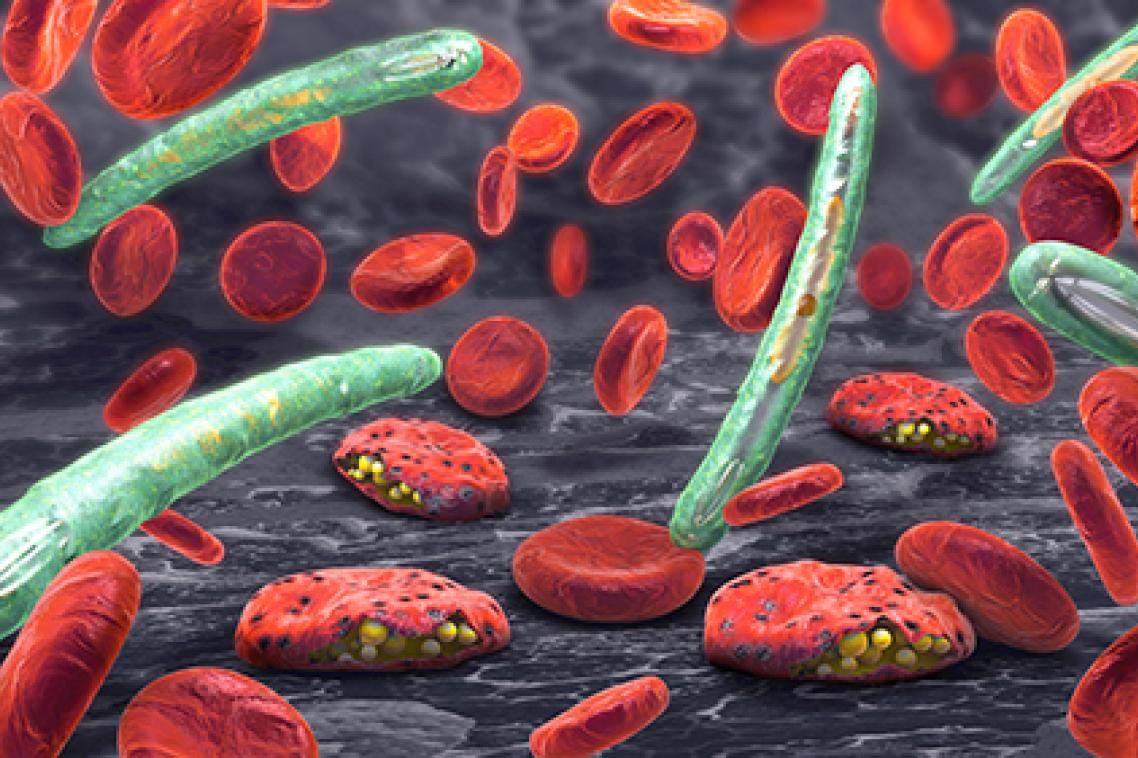Potential malaria killer designed by Australian researchers

A molecule that kills the malaria parasite while leaving a patient’s healthy cells intact has been developed by researchers from The University of Queensland and The Australian National University (ANU).
Scientists from UQ’s Institute for Molecular Bioscience (IMB) took a protein, PF4, discovered by ANU researchers and engineered it into a smaller molecule more suitable for drug development.
The joint team then tested the resulting peptide to determine how it destroyed the malaria parasite, plasmodium, while leaving human cells untouched.
UQ’s Dr Nicole Lawrence said the designer peptide was smaller than the parent protein, allowing better therapeutic targeting without unwanted side effects.
“The most critical feature of the peptide we designed is its big window of safety over healthy cells, because the peptide specifically targets cells that are infected with malaria parasites,” she said.
“The peptide only kills the Plasmodium parasite and doesn’t damage the rest of the infected cell.
“Our next step is to improve the potency of the designer peptide and lessen the chance of future drug resistance through dual targeting of plasmodium’s internal membranes and key enzymes.”
Malaria claimed almost half a million lives and infected more than 200 million people in 2016, according to World Health Organization figures, and current treatments are at serious risk of becoming less effective due to drug resistance.
Associate Professor Brendan McMorran from ANU’s John Curtin School of Medical Research said the team was a step closer to developing a new and effective treatment for the disease.
“PF4, which my research group at ANU identified in previous work, is the only human protein known to kill malarial parasites.”
“We have shown that this peptide kills the parasite in a way that is completely different to how current antimalarial drugs work,” Dr McMorran said.
“This is important because finding new ways to kill the parasite will help us overcome the drug-resistance problems.”
The study also involved experts from the ANU Research School of Biology.
It was published in international scientific journal Cell Chemical Biology (doi.org/10.1016/j.chembiol.2018.06.009).
Media contacts: Dr Nicole Lawrence, n.lawrence@imb.uq.edu.au, +61 407 033 708; IMB Communications, communications@imb.uq.edu.au, +61 418 575 247.
Related articles

Decades of surveys show whale migration shift

Should you consent to your doctor using an AI scribe? Here’s what you should know.
Media contact
UQ Communications
communications@uq.edu.au
+61 429 056 139
